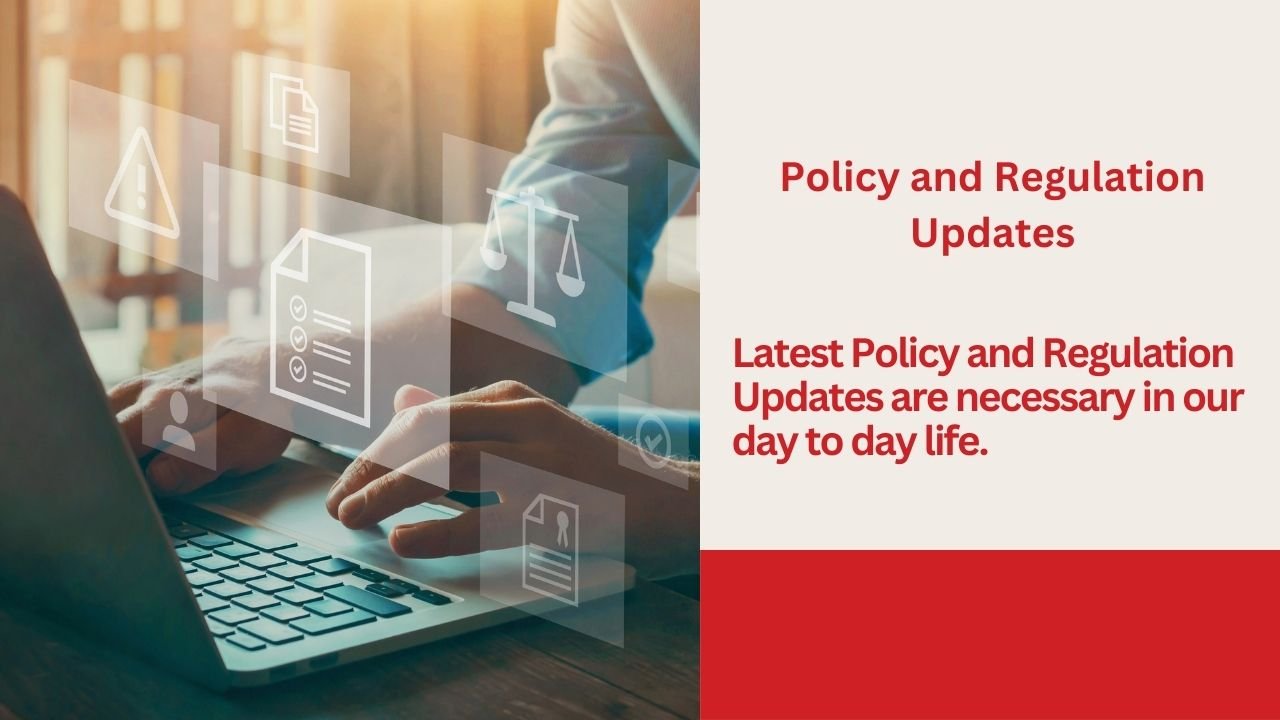Navigating Policy and Regulation Updates: What You Need to Know in 2024
Educational policies and regulations undergo frequent updates, reflecting shifts in societal needs and educational priorities. Staying informed about these changes is crucial for educators, students, and policymakers. This blog explores the latest policy and regulation updates in education for 2024, providing insights into their implications and how they shape the future of schooling.
Understanding the Impact of Policy and Regulation Updates
Policies and regulations govern various aspects of education, including funding, standards, and teacher qualifications. Recent updates address emerging issues and set new standards for educational practices. By understanding these changes, stakeholders can better navigate the evolving educational landscape.
Key Updates in Education Policy
Increased Focus on Equity and Inclusion
Recent policy updates emphasize equity and inclusion within the educational system. New regulations aim to address disparities in educational opportunities and resources among different student populations. For example, policies now require schools to implement strategies that support students with disabilities and those from marginalized communities.
Educators must adapt to these changes by creating inclusive classroom environments and using differentiated instruction techniques. Schools may also receive additional funding to support programs designed to reduce achievement gaps and promote equal opportunities for all students.
Enhanced Data Privacy Protections
With the rise of digital learning tools, data privacy has become a critical concern. Updated regulations now enforce stricter data privacy protections to safeguard student information. Schools must comply with new guidelines regarding the collection, storage, and sharing of student data.
Educators and administrators should be aware of these regulations to ensure they handle student data responsibly. Implementing secure systems and providing training on data privacy best practices will help schools maintain compliance and protect student information.
Changes in Teacher Evaluation and Certification
Policy changes also affect teacher evaluation and certification processes. New standards require more comprehensive assessments of teacher performance, focusing on student outcomes and professional development. These updates aim to improve teaching quality and ensure that educators are well-prepared to meet the needs of their students.
Teachers may need to participate in additional professional development activities to meet the new certification requirements. Schools should provide support and resources to help educators adapt to these changes and enhance their teaching practices.
Regulatory Changes Affecting School Funding
New Funding Models and Allocation Strategies
Recent updates to school funding policies introduce new models and allocation strategies. These changes aim to distribute resources more equitably among schools, addressing disparities in funding and ensuring that all students have access to quality education.
Schools may see shifts in funding priorities, with increased support for programs that address specific needs such as early literacy or STEM education. Administrators should review these updates to understand how they impact their budgets and plan accordingly to maximize the benefits of available resources.
Accountability Measures for Funding Utilization
Along with new funding models, updated regulations include stricter accountability measures for how schools use their funds. Schools must now demonstrate that they are effectively utilizing funding to achieve educational goals and improve student outcomes.
To comply with these measures, schools should implement robust tracking and reporting systems to monitor the impact of their expenditures. Regular evaluations and transparent reporting will help ensure that funding is used efficiently and that educational improvements are measurable.
Adapting to New Standards and Requirements
Curriculum and Instruction Adjustments
Policy updates often necessitate changes to curriculum and instructional practices. Schools must align their curricula with new standards and integrate updated content areas into their teaching. This may involve revising lesson plans, adopting new educational resources, and training teachers on updated practices.
Educators should stay informed about these changes and seek professional development opportunities to adjust their teaching methods effectively. Collaboration with colleagues and participation in curriculum review committees can also support the transition to new standards.
Compliance and Documentation
Meeting regulatory requirements involves thorough documentation and compliance efforts. Schools must maintain accurate records of their adherence to new policies and regulations. This includes documenting changes in curriculum, teacher qualifications, and funding utilization.
Administrators should establish clear procedures for documenting compliance and regularly review these processes to ensure they meet current requirements. Efficient documentation practices will help schools avoid potential compliance issues and demonstrate their commitment to upholding educational standards.
Future Trends and Considerations
The Role of Technology in Policy Implementation
Technology continues to play a significant role in implementing educational policies and regulations. Advances in educational technology offer tools for monitoring compliance, enhancing teaching practices, and engaging students. As policies evolve, schools should leverage technology to streamline administrative tasks and support educational objectives.
Ongoing Policy Reviews and Adjustments
Educational policies and regulations are not static; they undergo regular reviews and adjustments to reflect changing needs and priorities. Staying informed about upcoming reviews and participating in policy discussions can help stakeholders influence future changes and advocate for improvements that benefit the educational system.
Conclusion
Navigating policy and regulation updates is essential for maintaining an effective and compliant educational system. By understanding recent changes, including those related to equity and inclusion, data privacy, and funding, educators and administrators can better adapt to the evolving landscape of education. Staying informed and proactive ensures that schools continue to provide high-quality education and meet regulatory requirements effectively.



Leave a Reply